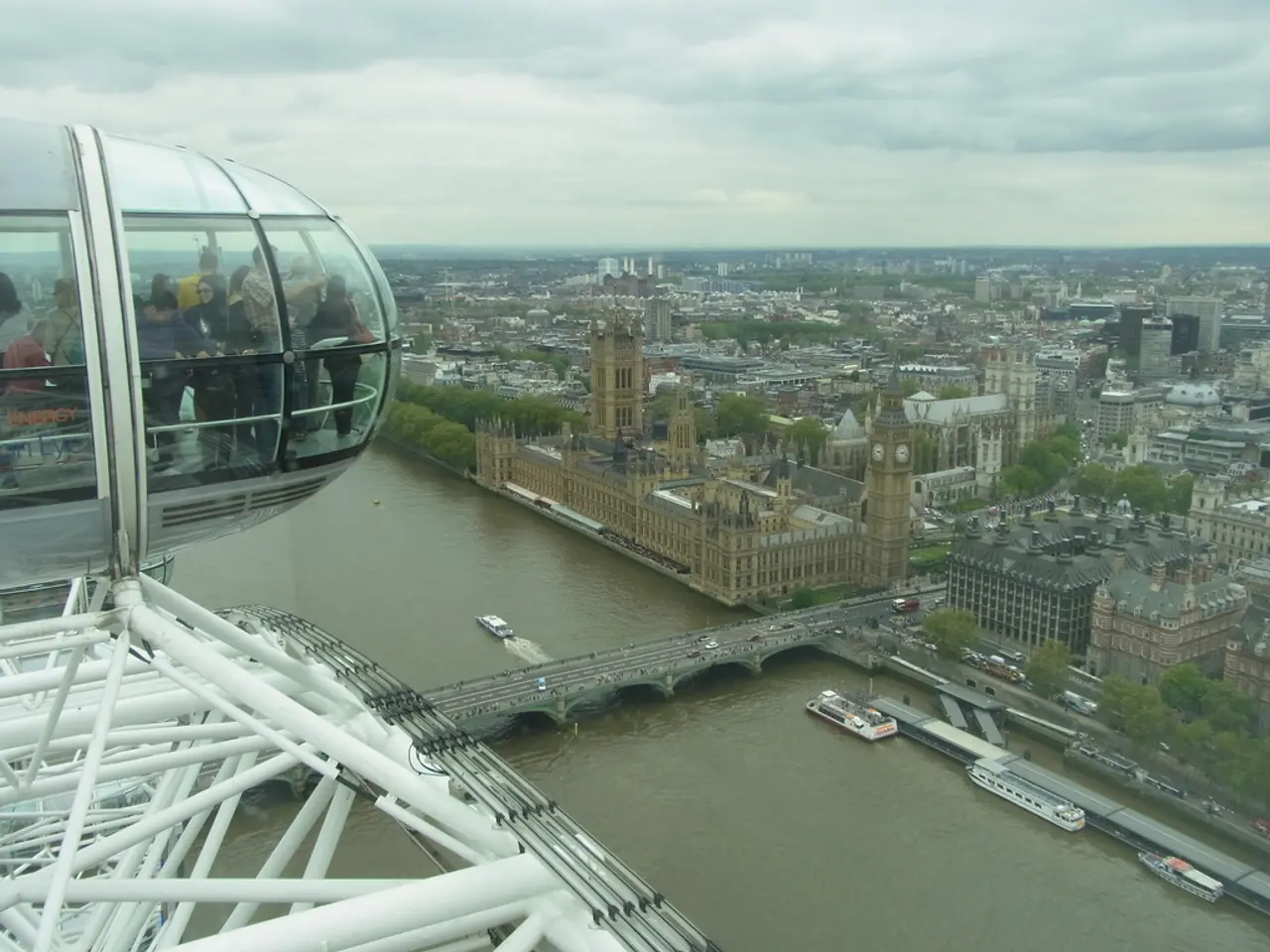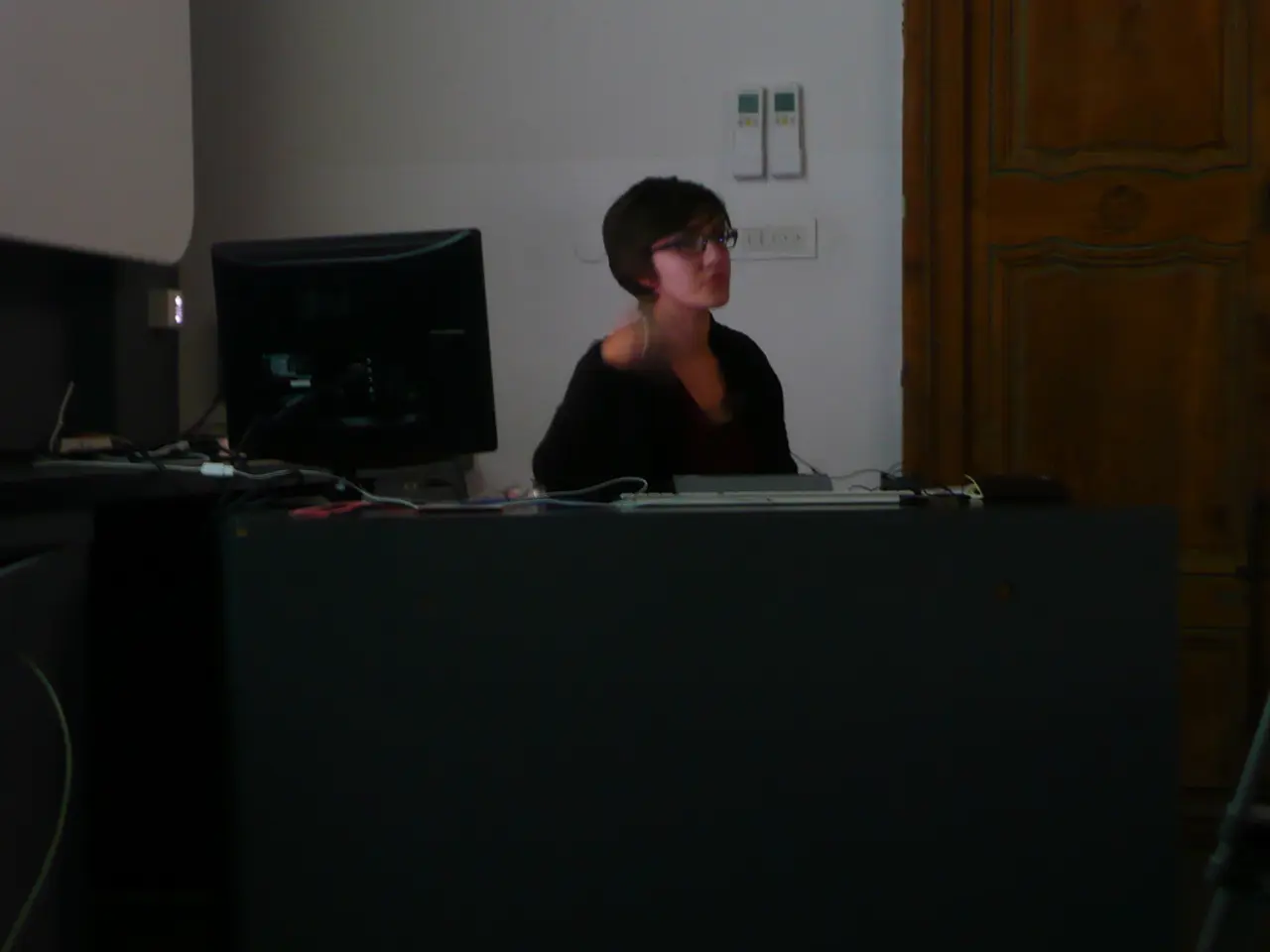Future of Human Race and the Significance of Immediate Financial Gain
================================================================
In today's fast-paced world, it's easy for organizations to get caught up in the pursuit of immediate profits. However, a new wave of thought is emerging, emphasizing the importance of long-term thinking for the survival and success of businesses, as well as the human species.
The traditional prioritization of short-term profits often undermines long-term sustainability, exacerbating environmental degradation, the climate crisis, and neglecting broader social well-being. This focus on quarterly earnings and immediate cash distributions discourages investments in sustainable, long-term strategies that require patience but yield greater cumulative returns and reduce ecological harm.
For instance, sustainable investments like renewable energy projects have longer payback periods compared to conventional cost-cutting projects. Yet, they deliver significantly higher long-term internal rates of return and free cash flow, highlighting how a short-term profit focus inhibits transformative innovation needed for survival.
This short-termism leads to environmental harm as the natural world is subordinated to immediate human interests, accelerating climate degradation and biodiversity loss. Furthermore, the narrow financial lens used by many corporations to report sustainability efforts often favors easy-to-measure metrics rather than outcomes that truly matter for environmental health or human well-being, resulting in "box-checking" rather than meaningful impact.
On the other hand, governance models that embrace longer-term moral and ecological considerations show promise in addressing these threats. By integrating sustainability into core strategy, executive incentives, and capital allocation beyond short-term financial returns, these models are proving to be more resilient and effective. A majority of large companies now increasingly measure sustainability ROI and find it aligned with profitability growth over time, reflecting a strategic shift needed to secure human and planetary longevity.
Small businesses, too, can benefit from a more strategic approach. A reactive approach can create a cycle of instability that jeopardizes future success. Fostering an environment that values innovation and strategic foresight helps organizations navigate the complexities of an ever-changing world. Small businesses often face short-term pressures leading to poor strategic decisions, such as taking on unfavorable loans or selling equity at a loss. Embracing a more strategic approach benefits individual organizations and contributes to the resilience of society as a whole.
Moreover, companies prioritizing immediate financial performance may face backlash due to negative consequences for employees or the environment. Shortcuts on safety regulations can lead to catastrophic failures that harm a company's reputation and viability. Organizations must adopt a holistic perspective, considering the broader implications of their actions, such as investing in sustainable practices, prioritizing employee well-being, and engaging with communities.
In conclusion, the fixation on short-term profits impairs the systemic changes essential for long-term human survival by deferring investment in sustainability, accelerating environmental crises, and promoting fragmented, finance-driven approaches that may prioritize appearance over impact. Reorienting business and governance towards extended horizons and comprehensive value assessments is crucial to safeguarding the future of the human species. The survival of Homo sapiens relies on balancing immediate needs with long-term sustainability goals. Embracing a more strategic approach benefits individual organizations and contributes to the resilience of society as a whole.
- The evolution of thought urges businesses to prioritize long-term sustainability over immediate profits, creating a more resilient and successful future for organizations and the human species.
- In the realm of health-and-wellness, focusing on short-term earnings discourages investments in transformative wellness strategies, hampering cumulative returns and ecological health.
- Fitness and exercise, like sustainability, require long-term commitment for optimal results; a short-term profit focus deters organizations from investing in these areas, restricting human potential and well-being.
- Environmental science points to the urgency of shifting financial priorities to support sustainable energy projects – although they have longer payback periods, they deliver higher long-term returns and alleviate ecological harm.
- Embracing a strategic approach, whether it is in finance, investing, business, or personal-finance, entails considering the broader implications of decisions, engendering resilience for organizations and society as a whole.
- Technology and education-and-self-developmentfunction as drivers of progress, and a concentration on short-term performance may lead to missed opportunities for innovation, hindering human survival and the development of sustainable solutions.




